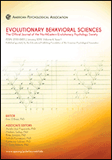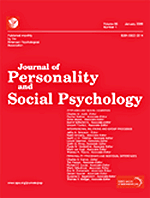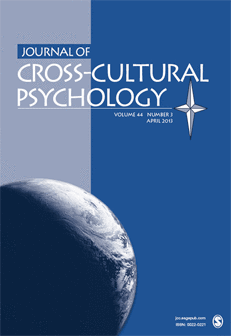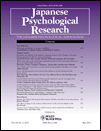
Nature Human Behaviour
Scope & Guideline
Advancing the science of behavior and cognition.
Introduction
Aims and Scopes
- Interdisciplinary Research on Human Behaviour:
The journal encompasses a wide range of studies that evaluate human behavior through various lenses including psychology, sociology, neuroscience, and economics, promoting a holistic understanding of human interactions. - Impact of Social and Cultural Factors:
Research published often investigates how cultural, social, and environmental factors influence individual and group behaviors, with a focus on equity, diversity, and inclusion. - Application of Behavioral Insights to Policy:
Nature Human Behaviour aims to bridge the gap between research and practice by providing insights that can inform public policy, particularly in areas such as health, education, and social justice. - Focus on Mental Health and Well-being:
The journal highlights studies that explore psychological well-being, mental health interventions, and the societal impacts of mental health issues, reflecting a growing recognition of the importance of mental health across disciplines. - Technological Influence on Behaviour:
There is a consistent exploration of how emerging technologies, such as AI and social media, shape human behavior and societal dynamics, offering critical examinations of both positive and negative consequences.
Trending and Emerging
- Mental Health and Resilience:
There is a marked increase in studies focusing on mental health, particularly in the context of the COVID-19 pandemic, highlighting the importance of understanding resilience, coping mechanisms, and the societal impacts of mental health. - Social Media and Misinformation:
Research examining the effects of social media on behavior and the spread of misinformation has gained traction, reflecting the urgent need to understand digital communication's role in shaping public opinion and behavior. - Climate Change and Behavioral Responses:
Emerging studies explore the interactions between human behavior and climate change, emphasizing behavioral science's role in promoting sustainable practices and informing climate policy. - Diversity, Equity, and Inclusion:
There is a growing body of research focused on diversity and inclusion, particularly in academic and professional settings, indicating a trend towards understanding systemic inequalities and promoting equity. - AI and Human Interaction:
The impact of artificial intelligence on human behavior is a burgeoning area of interest, with studies investigating how AI influences decision-making, social dynamics, and ethical considerations in technology use.
Declining or Waning
- Traditional Psychological Studies:
There appears to be a waning emphasis on traditional experimental psychology studies focused solely on isolated cognitive processes, as the journal increasingly favors interdisciplinary approaches that incorporate social and cultural contexts. - Narrowly Defined Behavioral Economics:
While behavioral economics remains relevant, there seems to be a decline in narrowly focused economic studies that do not integrate broader social implications, as the journal shifts towards more holistic analyses. - Static Models of Human Interaction:
The journal has moved away from static models of human interaction that do not account for changing social dynamics, reflecting a broader trend towards dynamic systems approaches in behavioral research. - Overemphasis on WEIRD Populations:
Research focusing exclusively on Western, Educated, Industrialized, Rich, and Democratic (WEIRD) populations is becoming less prominent, as there is a growing recognition of the need for more diverse and representative samples in behavioral research.
Similar Journals

Evolutionary Behavioral Sciences
Bridging Evolution and Behavior for a Deeper UnderstandingEvolutionary Behavioral Sciences, an esteemed journal published by the American Psychological Association, offers a compelling platform for researchers and professionals engaged in the fields of Experimental and Cognitive Psychology and Social Psychology. With an ISSN of 2330-2925, this journal has been a vital resource since its inception in 2014, aiming to bridge the gap between evolutionary theory and behavioral science, thereby fostering an interdisciplinary dialogue among scholars. Despite its current Q3 ranking in both relevant categories, it is poised for growth and increased visibility within the academic community, addressing contemporary issues through rigorous empirical research and theoretical advancements. Access to the journal is restricted, which bolsters its scholarly integrity, while its publication from one of the leading psychological associations signifies its commitment to excellence in behavioral research. Through the convergence of innovative studies and evolving methodologies, Evolutionary Behavioral Sciences underscores the importance of understanding human behavior from an evolutionary perspective, making it an essential read for anyone interested in the dynamics of behavior, cognition, and social interaction.

JOURNAL OF PERSONALITY AND SOCIAL PSYCHOLOGY
Unraveling the Complexities of Social InteractionsJournal of Personality and Social Psychology, published by the American Psychological Association, stands as a premier resource in the fields of social psychology and sociology, offering critical insights into the dynamics of human behavior and interpersonal relationships. With an impressive impact factor and ranked in the top tier of academic journals—Q1 in both Social Psychology and Sociology & Political Science—it consistently attracts high-caliber research submissions that advance theoretical and practical knowledge. Established in 1965, this journal has become a cornerstone for scholars and practitioners alike, facilitating the dissemination of pivotal studies in understanding social influences and individual personalities. As a key player in its field, it is essential reading for anyone involved in psychological research, providing a platform for innovative ideas and comprehensive analyses. Despite its subscription-only access model, its influence is reinforced by its consistently high rankings on Scopus, underscoring its significance by being in the 98th percentile for sociology and the 97th percentile for social psychology. Academics looking to delve into transformative concepts around personality and social interactions will find Journal of Personality and Social Psychology an invaluable addition to their resources.

JOURNAL OF CROSS-CULTURAL PSYCHOLOGY
Understanding Behavior Through a Cultural LensJOURNAL OF CROSS-CULTURAL PSYCHOLOGY, published by SAGE PUBLICATIONS INC, is a premier journal dedicated to the exploration and understanding of psychological phenomena across diverse cultural contexts. With an impressive impact factor reflective of its significance in the academic community, this journal ranks in the top quartile (Q1) for Anthropology, Cultural Studies, and Social Psychology, making it a vital resource for researchers and professionals alike. Spanning from its inception in 1970 to the upcoming year of 2024, the journal covers a wide array of topics that illuminate the nuances of human behavior and cultural interactions, supported by rigorous empirical research. It holds notable rankings in Scopus, including a remarkable 42nd position in Cultural Studies, ensuring its content reaches a high-impact audience. Researchers, students, and practitioners interested in the intersection of culture and psychology will find the journal invaluable for advancing their knowledge and contributing to this dynamic field.

Computers in Human Behavior Reports
Bridging technology and psychology for innovative solutions.Computers in Human Behavior Reports, published by ELSEVIER, is a distinguished open-access journal dedicated to advancing interdisciplinary research at the intersection of technology and human behavior. Since its inception in 2020, the journal has quickly gained a prominent position in the academic field, attaining Q1 category rankings in multiple areas including Applied Psychology, Artificial Intelligence, Cognitive Neuroscience, Human-Computer Interaction, and Neuroscience (miscellaneous). Its robust standing is evidenced by its exceptional Scopus ranks, particularly in Neuroscience—where it is positioned 4th out of 49 journals—demonstrating a high level of influence and engagement within the community. The journal's aim is to disseminate cutting-edge research findings and foster dialogue among researchers, professionals, and students alike, thereby addressing crucial questions regarding the impact of technology on human behavior and vice versa. As an open-access publication based in the United Kingdom, it not only enhances the visibility of research but also ensures wider accessibility to groundbreaking insights that shape our understanding of human-machine interactions.

VOPROSY PSIKHOLOGII
Illuminating Emerging Trends in Psychological ResearchVOPROSY PSIKHOLOGII, a prominent journal in the field of psychology, has been publishing insightful research since its inception in 1960. With a focus on various aspects of psychological research, this journal offers a platform for the dissemination of knowledge and advancements in the discipline within the Russian Federation and beyond. Published by MEZHDUNARODNAYA KNIGA, the journal provides access to a diverse range of studies and theoretical discussions, although it currently does not offer open access. As of 2023, it holds a category quartile ranking of Q4 in miscellaneous psychology, reflecting its niche position within the broader psychological community. Despite its lower Scopus rank at #206 out of 216, the journal remains a valuable resource for students, researchers, and professionals seeking to engage with emerging trends and ideas in psychology. VOPROSY PSIKHOLOGII continues to contribute significantly to the academic dialogue, inviting engagement from scholars dedicated to exploring the complexities of human behavior.

PSYCHOLOGICA BELGICA
Exploring the depths of the human mind, freely accessible.PSYCHOLOGICA BELGICA is a distinguished open access journal published by UBIQUITY PRESS LTD, focusing on the broad and diverse field of psychology. Since its inception in 1975, this journal has been dedicated to the dissemination of high-quality research, making it a vital resource for researchers, practitioners, and students alike. With an impact factor that reflects its significant contribution to the field, PSYCHOLOGICA BELGICA stands out in the Q2 category of miscellaneous psychology and is ranked 75th out of 216 journals in General Psychology according to Scopus. The journal's open access model, adopted in 2004, ensures that the latest research findings are freely accessible, promoting a wider engagement with psychological science. With a commitment to fostering academic collaboration and innovation, PSYCHOLOGICA BELGICA continues to be an essential platform for advancing psychological knowledge and exploring contemporary issues within the discipline.

BEHAVIOUR & INFORMATION TECHNOLOGY
Bridging Technology and Human Behavior.BEHAVIOUR & INFORMATION TECHNOLOGY, published by Taylor & Francis Ltd, is a leading journal in the interdisciplinary field that bridges the gap between technology and human behavior. Established in 1982 and continuing through 2024, this journal has garnered a high reputation with impressive rankings in 2023 across various categories: Q1 in Arts and Humanities (miscellaneous), Q2 in Developmental and Educational Psychology, Q2 in Human-Computer Interaction, and Q1 in Social Sciences (miscellaneous). The journal's robust Scopus rankings point to its influence among peers, being placed in the top percentiles across multiple relevant disciplines. Although it does not offer open access, it remains a pivotal resource for researchers and practitioners interested in the dynamics of technology's impact on behavior. By publishing rigorously peer-reviewed research, BEHAVIOUR & INFORMATION TECHNOLOGY aims to foster insights that enhance our understanding of how information technology shapes human interactions and societal outcomes, making it a crucial publication for anyone engaged in this rapidly evolving field.

Perspectives on Behavior Science
Illuminating the Complexities of Human BehaviorPerspectives on Behavior Science, published by SPRINGER INT PUBL AG, serves as a pivotal platform in the field of psychology, encompassing comprehensive research and insights in Clinical Psychology, Social Psychology, and Experimental and Cognitive Psychology. Established in 2018, the journal is recognized for its rigorous peer-reviewed articles that contribute significantly to scholarly discourse, evidenced by its Q2 ranking in high-impact categories in 2023. With an ISSN of 2520-8969 and an E-ISSN of 2520-8977, it actively engages a global audience of researchers and practitioners keen on behavioral science advancements. The journal's commitment to open access ensures wide accessibility, enhancing the dissemination of knowledge. Each volume continues to illuminate the intersection of theory and practice, making it an essential resource for academic professionals and students pursuing profound understanding in the complexities of human behavior.

Evolutionary Psychology
Connecting Evolutionary Theory with Psychological ScienceEvolutionary Psychology is a crucial journal published by SAGE Publications Inc, dedicated to exploring the intersection of psychological sciences and evolutionary theory. Established as an Open Access platform since 2003, this journal aims to facilitate the dissemination of groundbreaking research that examines how evolutionary processes shape human behavior and cognitive functions. With a range of articles that cater to various aspects of psychology, especially in fields such as Behavioral Neuroscience, Social Psychology, and general Medicine, the journal holds significant relevance in contemporary academic discourse. Although it currently resides in the lower quartiles (Q4 and Q3) in its respective categories, it provides a vital space for innovative ideas and perspectives, inviting researchers and students to contribute and engage with the rapidly evolving understanding of human psychology through an evolutionary lens. The journal is indexed with an ISSN of 1474-7049, ensuring broad accessibility and outreach to a global audience.

JAPANESE PSYCHOLOGICAL RESEARCH
Pioneering Studies in the Diverse Landscape of PsychologyJapanese Psychological Research, published by Wiley, is a distinguished journal dedicated to advancing knowledge within the field of psychology, offering a platform for original research that reflects the diverse psychological landscape of Japan and its global relevance. Since its inception in 1954, this journal has served as a valuable resource for researchers, professionals, and students alike, encouraging the dissemination of innovative theoretical and empirical findings. With an Impact Factor that places it in the Q3 category in Psychology (Miscellaneous) and achieving a rank of #125 out of 216 in general psychology according to Scopus, it is recognized for its contribution to the scholarly community. Although it does not currently offer Open Access options, the journal's rich archive from 1954 to present ensures a comprehensive collection of psychological studies. Engage with Japanese Psychological Research to explore insights into behavioral science, cognitive processes, and cultural influences on psychological practices, making it an essential read for those committed to understanding the multifaceted world of psychology.